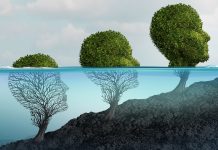When strangers give you a helping hand after your friends have forgotten about you, the world suddenly seems a little more beautiful. This was the experience of PJ Robins when a crowd of strangers suddenly arrived at the party for his autistic little girl, which no one else had wanted to attend.
PJ had organized an unforgettable birthday party for Remi, his five-year-old daughter. He had made a booking at the Eden Play Centre in Abertillery for Remi and her friends to share good food, cake, and fun for her birthday. On the morning of the party, two parents texted saying they were not coming. The others simply did not show up. Faced with this disappointing situation, PJ made a desperate move: on a Facebook group, he posted an open invitation to anyone with some free time and a child of Remi’s age. “We don’t expect anything, no cards or gifts, the party is all paid for and there’s plenty of food, we just want some children to come help our little girl celebrate… We have seven spots open. Please help us.”
“At one point she turned around and said ‘Mummy, where are all of my friends?’ and that was like a knife in the heart”, PJ said, remembering how Remi cried on the eve of her party. Just minutes after posting the message, 14 children joined the party, along with their parents, while a similar number of people dropped by the centre, just to leave gifts for the little girl and wish her a happy birthday.
“The kindness of the community—people we had never met—was absolutely mind-blowing” said PJ. “It was very emotional and completely restored our faith in humanity. I’m so proud to say I’m part of this community,” confessed the 40-year-old father.
As for Remi, although she was slightly confused at first, she quickly got used to her new friends. “The beautiful smile on her face when her cake came out made it all worthwhile,” said PJ.
Since the party, the family has been contacted by other parents of children with autism, who offered their support and wanted to organize play-dates for her and their children.
The emotional cost
Remi’s story is moving because it has a happy ending. But how many others do not end in the same way? Long-term research has shown that children and teens with various disabilities are more likely to fall victim to the indifference or discrimination of other children compared to their peers without disability. Sociologists have observed that, although children with disabilities sometimes mock other children too, disability goes hand in hand more with being a victim than a perpetrator of bullying. In fact, the association remains strong even after other factors that are known to be associated with bullying are eliminated.
Life with long-term disability can be very emotionally demanding, especially when it doesn’t have a foreseeable end.
Of course, not all disabilities are created equal. However, if we take the case of autism spectrum disorders, statistics show that 4 out of 10 people suffering from some form of autism also face a number of intellectual challenges. Experts point out that there is often confusion between learning disabilities and learning disorders, such as dyslexia, for example. Unlike learning disorders, learning disabilities involve an impairment of the intellect.
Researchers, especially in the field of psychiatry, observed that both children and teenagers with learning disorders face severe stress (16.6%), severe depression (14.2%) and severe anxiety (23.8%). Knowing that resilience is the ability that could help alleviate all these difficult challenges, the researchers found that 75% of these children had very resilient attitudes.
But what is resilience?
Resilience is the ability to bounce back, the process by which we readjust to reality after failure, trauma, or loss. It is the way we deal successfully with hardship or significant sources of stress in our lives (dysfunctional relationships, health problems, workplace problems or money problems). The emphasis is on the word “process” because, although in the past there was a suspicion that resilience was a personality trait, scientists have increasingly come to the conclusion that resilience is a learned response mechanism, so it can be trained. It doesn’t need to be innate.
According to the American Psychological Association, a resilient person is not one who does not feel pain when going through problems. On the contrary, resilience involves a considerable amount of emotional distress. A resilient person is one who has developed behaviours (thoughts and actions) that help them regain their balance after the initial shock of an imbalance.
Some of the earliest serious research on resilience belongs to the behavioural psychologist Emmy E. Werner. She conducted a longitudinal study for over 40 years, looking at the evolution of 698 children, namely all children born on the Hawaiian island of Kauai in 1955. The study aimed to determine whether it is true that most children exposed to a harmful environment (an unstable family, or a mentally ill mother, for example) end up having more problems with the law, more mental and physical health problems, and later end up having problems in the families they form themselves, compared to the children who were not exposed to such an environment.
Werner confirmed the hypothesis, but also discovered something else: a third of the children at risk of developing problems did not develop them, but rather showed resilience and became competent, confident, and involved adults, despite their problematic past. Therefore, Werner went further down the line to find out what the protective factors were that helped these children. Her findings brought her numerous national and international awards. As she said, it’s very important for the little one to have a close relationship with someone who will take care of them (an aunt, a nanny, a teacher) and be an active member of a church or community group.
The allies who protect us
Werner’s conclusions were later reinforced by many other studies that showed that the main factor in developing resilience is the ability to count on someone within or outside the family, a person who cares about and takes care of the child. In this type of relationship, children learn to trust and love, observe positive role models, and are encouraged to persevere.
According to the American Psychological Association (APA), if a list of the top 5 factors for cultivating resilience were made it would include: the ability to make realistic plans and to take steps towards fulfilling these plans; a positive view of oneself and confidence in personal strengths and abilities; having communication and problem solving skills; and the ability to manage strong feelings and impulses.
The APA has also put together a strategy consisting of a few steps we can follow to develop our resilience or encourage it in others.
Make connections. Good relationships with close family members, friends, or other people close to you are important. Resilience is strengthened when we accept the help and support of those who care about us. Participating in civic groups, religious organizations, or other local groups is a support for both the person involved and for those helping them.
Avoid seeing crises as insurmountable problems. We can’t change the fact that extremely stressful events happen, but we can change the way we interpret and respond to these events. Let’s try to look beyond the present, towards ways in which circumstances could improve, or towards any subtle way that could help us feel a little better, even when we’re in the middle of a difficult situation.
Accept that change is a part of life. Certain goals will no longer be achievable as a result of adverse situations. Accepting situations that cannot be changed can help us focus on situations that we can change.
Focus on the objectives. We should outline some realistic goals and then make regular steps in their direction. Instead of focusing on tasks that seem inconceivable, let’s ask ourselves, “What is the one thing I know I can accomplish today that helps me move in the direction I want to go?”
Take decisive steps. It’s important to act decisively, as much as we can in the context of adverse situations, instead of completely detaching ourselves from problems and stresses, hoping that they will disappear.
Seek opportunities for self awareness. Often, the lessons we learn about ourselves and our personal development arise as a result of struggling with loss. Many people who have gone through hardships or even personal tragedies have managed to develop deeper relationships with those around them and have a sense of power, even in the midst of vulnerability, an increased sense of self-worth, a more developed spirituality and increased appreciation of life.
Foster a positive self-perspective. Developing confidence in our problem-solving skills and confidence in our instincts helps build resilience. Faith can help us maintain a hopeful outlook on life even when it seems hard to maintain a positive self-image. When we realize that our identity is a gift from God, the imperfections we encounter are not final condemnations, but just that: imperfections.
Take care of yourself. Paying attention to your own needs and feelings is crucial. Get involved in activities that you like and that relax you. Exercise regularly. Caring for yourself helps you maintains your mental and physical health and thus helps you cope with situations that require resilience.
Of course, this list is not exhaustive. Various other strategies can help us cope with the difficulties we face. However, it is very important to remember that resilience, insofar as we consider it a resource, can be accumulated in quiet times as well. Those healthy relationships that we can rely on in hard times don’t come out of the blue. They can be developed at any time, but it is easiest to cultivate them when we feel good. We hone our communication skills most effectively when we are not under pressure, or going through hardship. The ability to plan and break down our goals into realistic steps is also not innate, but must be learned.
There’s no reason to postpone self-education until a crisis hits. Considering the fact that, these days, we are being bombarded with sources of pseudo-learning, it’s good for self-development to begin and take place when we have the time and patience to check our sources and choose to learn valuable things, even if they aren’t easy to find.
Alina Kartman is a senior editor at Signs of the Times and ST Network.



















